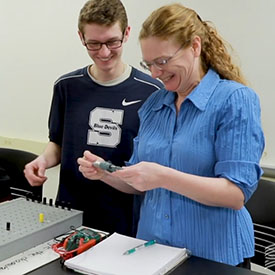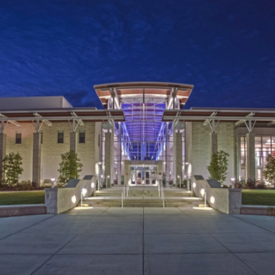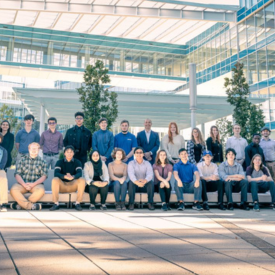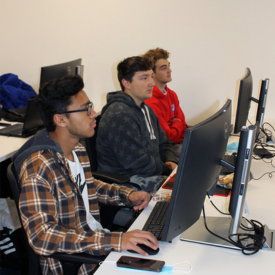Our Impact
AASCU delivers America’s promise of opportunities for all.
Our vital network of state colleges, universities, and higher education partners strives to advance and reimagine student success and institutional transformation across the nation and around the world.
Join us.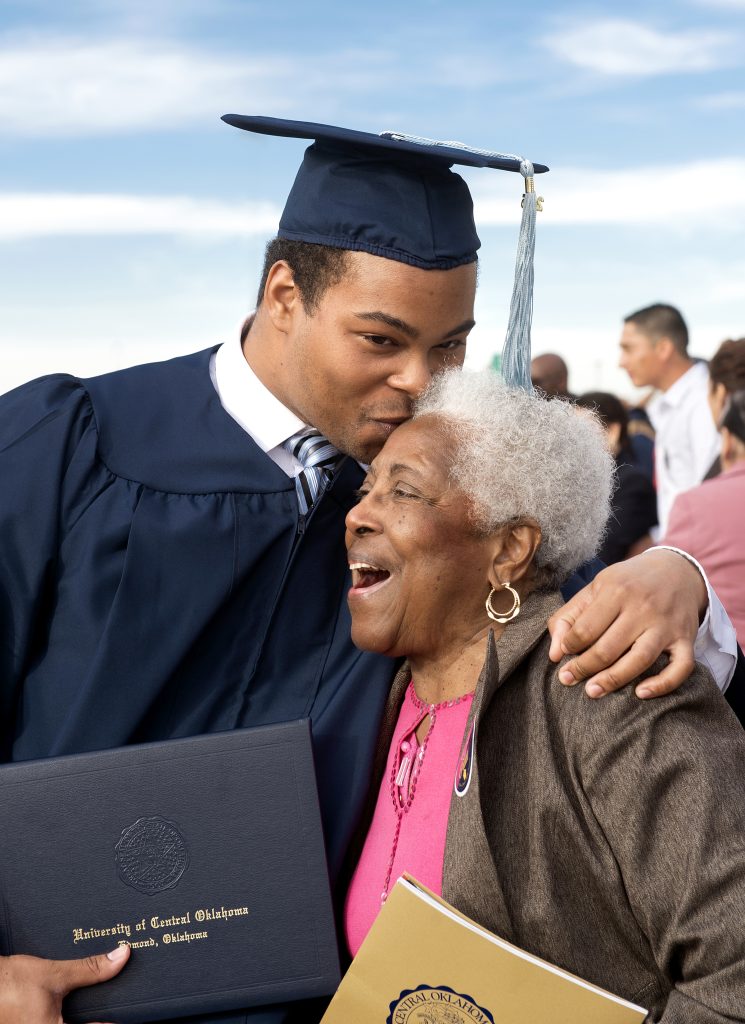
Our members educate the leaders and citizens for the workforce of today and tomorrow.
86%
of the nation’s public four-year institutions are regional public universities.
70%
of the nation’s 7 million undergraduate students at public four-year institutions are enrolled by regional public universities.
66%
of public, four-year bachelor’s degrees are awarded by regional public universities.
46%
of undergraduates enrolled at regional public universities are students of color.
90%
of public four-year HSIs and 88% of public four-year Emerging HSIs are regional public universities.
100%
of public four-year HBCUs are regional public universities.
37%
of undergraduates at regional public universities receive Pell Grants, on average.
≈$10,000
is the average yearly tuition for in-state, full-time undergraduates at regional public universities.
$2,300 less
The average tuition and fees at regional public universities is about $2,300 less than that of other public four-year institutions.
Source: Most recent AASCU analysis of College Scorecard and Integrated Postsecondary Education Data System data.
Our Programs
Our responsive approach deepens our members’ effectiveness.
We transform institutions. |
$9.8Min direct grant support goes to 77 AASCU member campuses to support student success. 51institutions (plus one system) comprise the first three cohorts of AASCU’s SSEI program. 600K+students are served by the first three cohort institutions of SSEI. |
We shape
|
520Regional public universities (RPUs) make up the sector AASCU represents as a policy voice in Congress and the administration. 179RPUs are eligible for at least one minority-serving institution designation, for whom AASCU advocates increased federal institutional support. 37%of students at RPUs receive Pell Grants on average; AASCU supports doubling these grants to $13K per year. |
We equip
|
1100+campus leaders have participated in one or more of AASCU’s leadership development programs since 2020. 65current presidents/chancellors of member institutions participated in at least one AASCU leadership development program. 150member institutions were represented across leadership development program cohorts in the 2025-26 academic year. |
We develop global citizens. |
6,500students from 182 institutions (144 Chinese, 38 U.S.) have participated in the Sino-U.S. CHEPD 1+2+1 Program, which carries $400 million in total economic impact. 500+people from 71 AASCU campuses attended a session in our Practicing Democracy workshop series, which provided networking, knowledge sharing, and capacity building for voter education and engagement efforts on college campuses. 70%of AASCU campus students exercise the right to vote, compared to 50% of students at other colleges. |
We create
|
817attended the three AASCU signature convenings in 2024. 13AASCU standing committees and affinity groups engage presidents and chancellors as national advocates for higher education and provide specialized networking and support throughout the year. |
We provide
|
475colleges and universities have been advised by AASCU Consulting on strategy, organizational transformation, leadership effectiveness, and building institutional capacity. 1.5Kactive funding opportunities are housed by AASCU’s Grants Resource Center (GRC) database. 150funded proposals are available for review through the GRC Funded Proposal Library. |
Campus Impact
Explore the ways our members are accelerating institutional transformation.
Our high-impact programs enable AASCU members to expand access and success for their diverse student bodies.
Meet the leaders we are privileged to serve as they drive student success.
We support current and aspiring state college and university presidents and chancellors as they prepare students of all backgrounds to achieve – and drive – upward social and economic mobility.
Help students at state colleges and universities reach their highest potential.
Advance our legislative priorities.
Explore the policy agenda we’ve designed to help policymakers and advocates better support state colleges and universities.
Advocate for our institutions.Partner with us.
Amplify the transformative power of state colleges and universities as a corporate partner, philanthropic partner, nonprofit partner or by engaging with our members.
Support our work.Become a member.
Leverage an AASCU membership to exchange vital expertise, expand your network, and elevate our collective voice.
Add to our ranks.